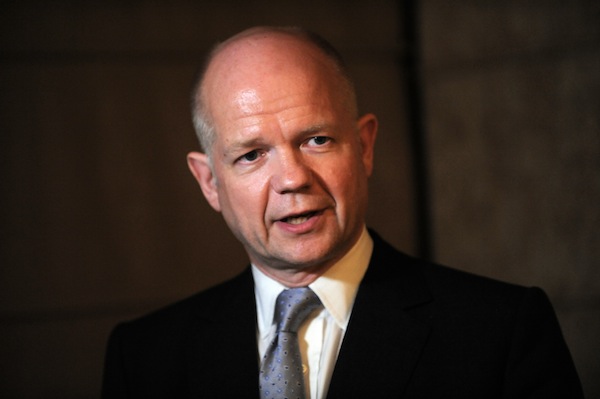The Conservatives know that the best way of detracting from the binary In/Out? debate about Europe in the Westminster bubble is to jolly well get on with making the case for reform in Europe. It is vital that ministers give the impression that there are changes that other European leaders would quite happily sign up to, rather than an impossible shopping list.
William Hague’s speech to the Konigswinter Conference in Germany today was part of that attempt. The idea he floated – of giving national parliaments a ‘red card’ to veto unwanted EU legislation – is something ministers and Tory MPs paving the way for a renegotiation have been discussing over the past month or so. He told the conference:
‘At the same time, we should do more to help our parliaments exercise their right to work together to raise a yellow card to object to legislation where action should be taken at a national rather than a European level, in line with the principle of subsidiarity. We should explore whether the yellow card provision could be strengthened or extended to give our parliaments the right to ask the Commission to start again where legislation is too intrusive, and fails the proportionality test. And we should think about going further still and consider a red card to give national parliaments the right to block legislation that need not be agreed at the European level.’
I hear that when this idea has come up in the exploratory reform meetings, it hasn’t been batted down by horrified representatives from other European members. This has partly been down to the way reforms to the yellow cards has been sold to those in the meetings, as a way of improving the decision-making system, rather than the UK lecturing the rest of Europe on how everything about the current situation is terrible. Ministers need a warm reception to these initial ideas for reform to reassure parliamentary colleagues that the renegotiation isn’t doomed before it has even really started.







Comments